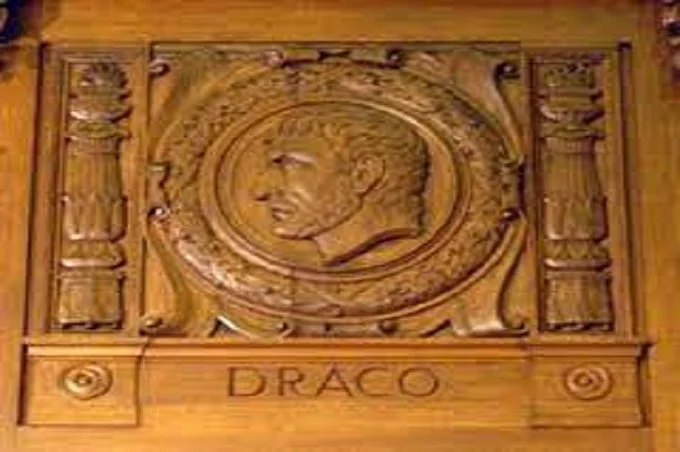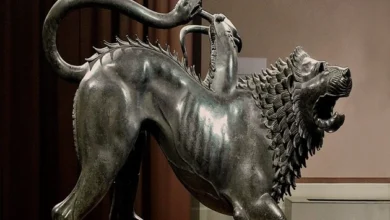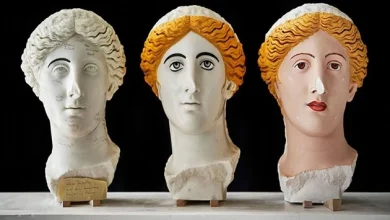How the cradle of democracy, Greece, became the mother of “draconian laws” and why they were written in blood

Athens is well-known as the cradle of democracy. A contentious occurrence served as the cornerstone of Athenian democracy’s development. There was an introduction of a written system of laws that a court of law could only enforce. On the one hand, the Athenian aristocrats were no longer in command of the unwritten laws (often misleading) interpretation. The code, on the other hand, was quite strict. It had been written in blood! The author was an Athenian legislator named Draco. To him, humanity owes the appearance of the term “draconian.”
The Draco’s Laws code
In the 7th century BC, the Draco lived in Athens. There were oral existing laws throughout this time. The Greek aristocracy was in charge of enforcing them. This resulted in an unjust system where everything may be perceived as favourable to the judge.
The Draco Code was first written on wooden tablets. Everyone could get acquainted with the content of any law. Aristotle, who is almost the only written source of information about the Draco, claims that these laws were written with human blood, not ink. This may be just a metaphor, a beautiful figure of speech, but a literal meaning is also very likely.
In addition to wooden tablets, which, according to historians, stood for two centuries, the laws of the Draco were also carved on stone tablets. Purely theoretically, the stone is a more durable material than wood. Almost all the tablets have been exposed to various natural factors for centuries, and none of them has survived to this day. Aristotle can only read the original texts of this code. Now, thanks to the latest technology, scientists can read the hidden text on the stone steles. This innovative technique is called X-ray fluorescence imaging. It is based on the discovery of a trace of pigments in the paint that was used to write the letters. It usually contained metal oxides and sulfides. Thus, the whole truth can be known.
Why are “draconian laws” being proposed?
Plutarch, the ancient Greek historian, is another source of information about Draco’s Laws. He says, for example, that stealing an apple or a cabbage resulted in death in his book “The Life of Solon.” When someone borrows money and cannot pay it back, he becomes a slave to his lender. Plutarch also notes that when Draco was asked why the death penalty was the most common punishment, he said, “Because the minor ones deserve it, and I have no capital sentence for major offences.” In this light, the amount of blood lost in the name of justice becomes clear. It’s no surprise that this codex has been described as having been written in blood.
Three methods of execution were often used. The first involves the condemned person being thrown into a deep abyss or pit. The second option was to tie the culprit to a tree and allow him to perish from hunger and cold. Death by hemlock poison was the third way. Socrates was eventually put to death in this manner.
Draco’s laws undoubtedly ensured that all people of Athens, regardless of origin, social station, or money, were treated equally before the law. This was wonderful and right, but the penalties were too harsh. It was clearly excessive to employ the death sentence for minor offences. All of the Draco Laws, except the murder law, were abolished less than half a century later. The Athenian politician and sage Solon were responsible for this. Other, more just laws replaced the draconian legislation. Solon has been called the “Father of Modern Western Law.” Despite this, it was the Draco who cleared the road for democracy and equality before the law in Athens. He should be recognized for this effort.
Very, very little is known about the legislator himself, who has become the talk of the town. The story claims that the Draco fell victim to its own popularity. When he was in the theatre of Aegina, his supporters decided to pay him their respect and the highest degree of approval. According to tradition, in this case, all those present threw outerwear on the head of the hero of the occasion. There were so many admiring spectators that under the weight of the thrown, Draco simply suffocated and died.




